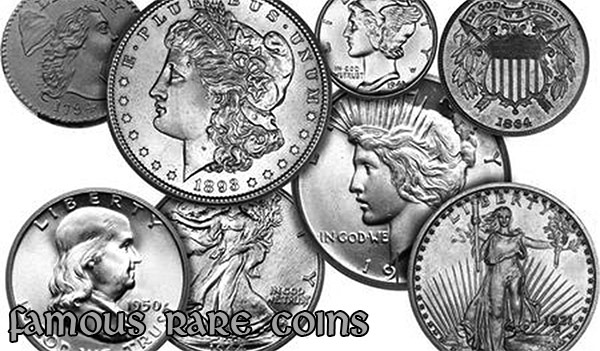
Learn about the most expensive and rare famous coins in the world, their corresponding values. The famous rare coins presented in this article are considered the most valuable coins in the coin collecting hobby.
Rarity is one factor that greatly influences value of coins. Generally, the rarest coins are also the most expensive collectable pieces especially if they have historical significance and stunning beauty.
The value of those rare famous coins can reach millions of dollars. This goes to show that rare coin collecting is not only an interesting hobby; it is also a very lucrative business.
The world’s rarest, most expensive and famous coins:
1933 Saint-Gaudens Double Eagle

The 1933 Saint-Gaudens Double Eagle is a gold coin with a $20 face value. It is known around the world to be the most expensive coin not only because of its market value but also of its spectacular beauty. In 2002, the coin was reportedly sold for $7,590,020.
History
It was in 1905 that President Theodore Roosevelt thought of changing the American coinage. President Roosevelt described US coins then as bland compared to the exquisiteness of Greek coins. He saw coins as a reflection of a country’s greatness.
In the growth of America’s power as a nation and in inspiration to the marvel of Greek coins, he decided to set new designs for the American coinage. He asked a friend and famous sculptor Augustus Saint-Gaudens to make designs of new US gold coins. In 1907, the gold Double Eagle coins by Saint-Gaudens were produced.
In 1933 during the Great Depression, President Franklin Roosevelt took off the gold standard from the American currency in the aim of stabilizing the economy. There was an end in circulating golden coins and people had to turn in the gold coins in their possession.
All the 1933 Double Eagle coins were ordered to be melted. A few coins had escaped the melt-down and were illegally traded by collectors. The “surviving” rare gold coins specimens were eventually hunted down and are now kept by the US Government.
There is only one legitimate example of the 1933 Saint-Gaudens Double Eagle Coin and is now in the possession of a private collector.
1913 Liberty Head Nickel

The 1913 Liberty Head Nickel is considered as one of the most expensive rare coins in the world, often second to the 1933 Double Eagle gold coin. Five pieces of the Liberty Nickel are said to exist with only three as available for acquisition. One piece of it was sold in May 2007 at a coin price of $5 million.
History
The history of the 1913 Liberty Head Nickel is rather controversial and mysterious because no other liberty nickels were produced in 1913. The five nickels are said to had been minted in the Philadelphia Mint secretly in 1913 just before the coins with Liberty Head design (officially minted and circulated 1883-1912) was about to be replaced with an Indian head (minted and circulated in 1913-1938).
In 1919, a man named Samuel Brown advertised that he was offering to pay for rare 1913 Liberty Nickels. This was the first time that the public knew such nickels existed. The next year, Brown attended a coin convention and displayed the rare nickels which he had purchased as a result of his advertisement.
It turned out that Brown had worked in the Philadelphia Mint before and this fact had opened to speculations that he was involved in the secret minting of the famous rare coins.
Though minting the 1913 Liberty Head coin was not considered illegal, it was, however presumed to be done in bad faith – to make profits from the nickels in the future.
1787 Brasher doubloons
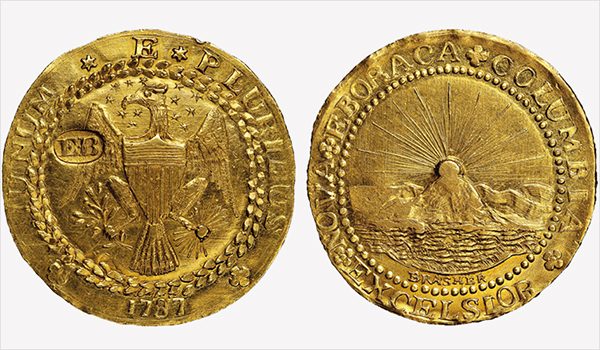
The 1787 Brasher Doubloon is believed to be the first gold coin made in America and is considered to be one of the most important coins in American numismatics.
Only seven pieces of these rare US coins were minted and this was done privately by its maker. One was sold in 2005 at $2.9 million.
History
Ephraim Brasher was a known American silversmith and goldsmith who struck various copper and US gold coins. In 1787, he petitioned that he may be granted by the New York State Assembly to produce copper coins for the state but it was not denied. This has led Brasher to pay attention again in producing gold coin patterns privately.
The 1787 Brasher Doubloon has the wording “Nova Eborac”, “Columbia”, and “Excelsior” which literally means “New York, America, Ever Upward”. It had an eagle design on its obverse.
As said, there were only seven 1787 Brasher Doubloon produced. All six bear the initials EB in an oval frame found on the eagle’s wing. One specimen bears the EB hallmark across the shield on the eagle’s breast.
The Australian Proof 1930 Penny
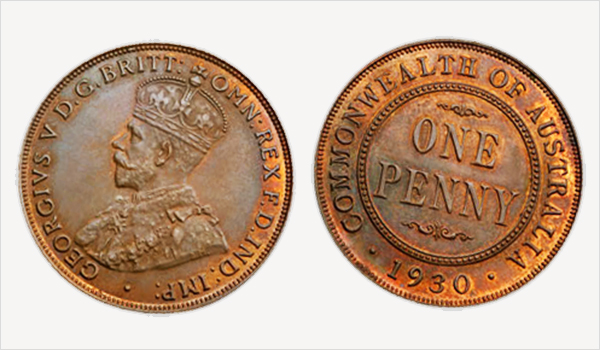
One of the most famous rare coins is the Australian Proof 1930 Penny with only six pieces minted. Deemed as the most valuable coin in Australia and the most valuable copper coin in the world, it was sold in 2005 for $517, 345 and has a current market value of more than a million dollars.
History/Background
The Australian Proof Penny was minted in 1930 at the Melbourne Mint for archival purposes, in other words, as a memorial or commemorative coin. It was never intended to be circulated but was only made to preserve a part of Australian history.
There were only six of these made and all of them are accounted for or recorded: three of the 1930 Australian copper pennies are in the possession of private collectors while the other three are kept by the British Museum, Museum of Victoria, and the Art Gallery of South Australia.
5.) 1894-S Barber Dime
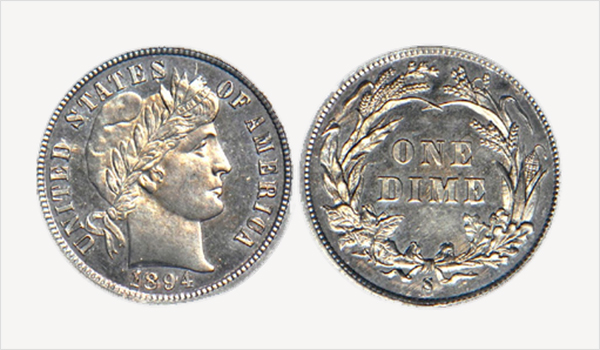
Another famous rare coin is the 1894-S Barber Dime. With only ten specimens of this coin existing today (from the 24 originally minted in San Francisco), the 1894-S Barber Dime is considered one of the most famous rare coins and also one of the most expensive being priced at $2, 000, 000.
History
The Barber dime is named after the person who designed it, Charles E. Barber, once Chief Engraver of the US Mint. The first Barber dimes were minted in 1892 and they were produced from 1892-1916 except in 1894. This fact makes the 1894-S Barber Dime a rare coin.
According to some stories, 24 barber dimes were produced in the mint in San Francisco in 1894 by the order of the mint superintendent, J. Daggett.
The coins were especially made to be given as gifts to banker friends while three were given away to the superintendent’s daughter, Hallie. Hallie bought one dime with ice cream (this barber dime is now called the “Ice Cream Specimen”) and the two others, she sold in 1954.
1804 Silver Dollar
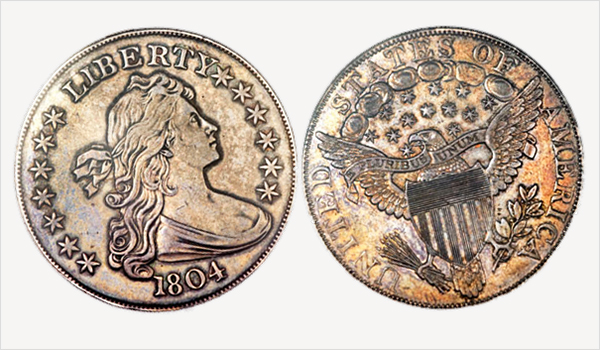
The 1804 Silver Dollar is popular, not only because it is rare but also because of its unique history – no 1804 silver dollar was minted in the year 1804. There are 15 specimens of the 1804 silver dollar coins known to exist divided in three classes. One coin was once sold at an auction for almost $4 million as market value.
History
There were actually 19,750 coins made during 1804 in the US Mint House. However, these coins were stricken with dies or metal stamping tool with an 1803 date. The first Silver Dollars with 1804 dates were minted only in 1834.
The first examples of these rare coins were especially minted as gifts to the King of Siam from America. There were eight pieces produced during 1834 and they fall under the Class I of the 1804 Silver Dollars.
Sometime between 1585 and 1860, examples of the 1804 dollars were illegally minted by a mint employee. There were around 15 pieces stricken but these were seized by the government and only one specimen is left. This belongs to Class II.
The Class III coins were said to be minted by the same person also sometime in 1585 and 1860. The 1804 Silver Dollars under this class have weaker strikes, so the design is hardly visible compared with the coins under Classes I and II.
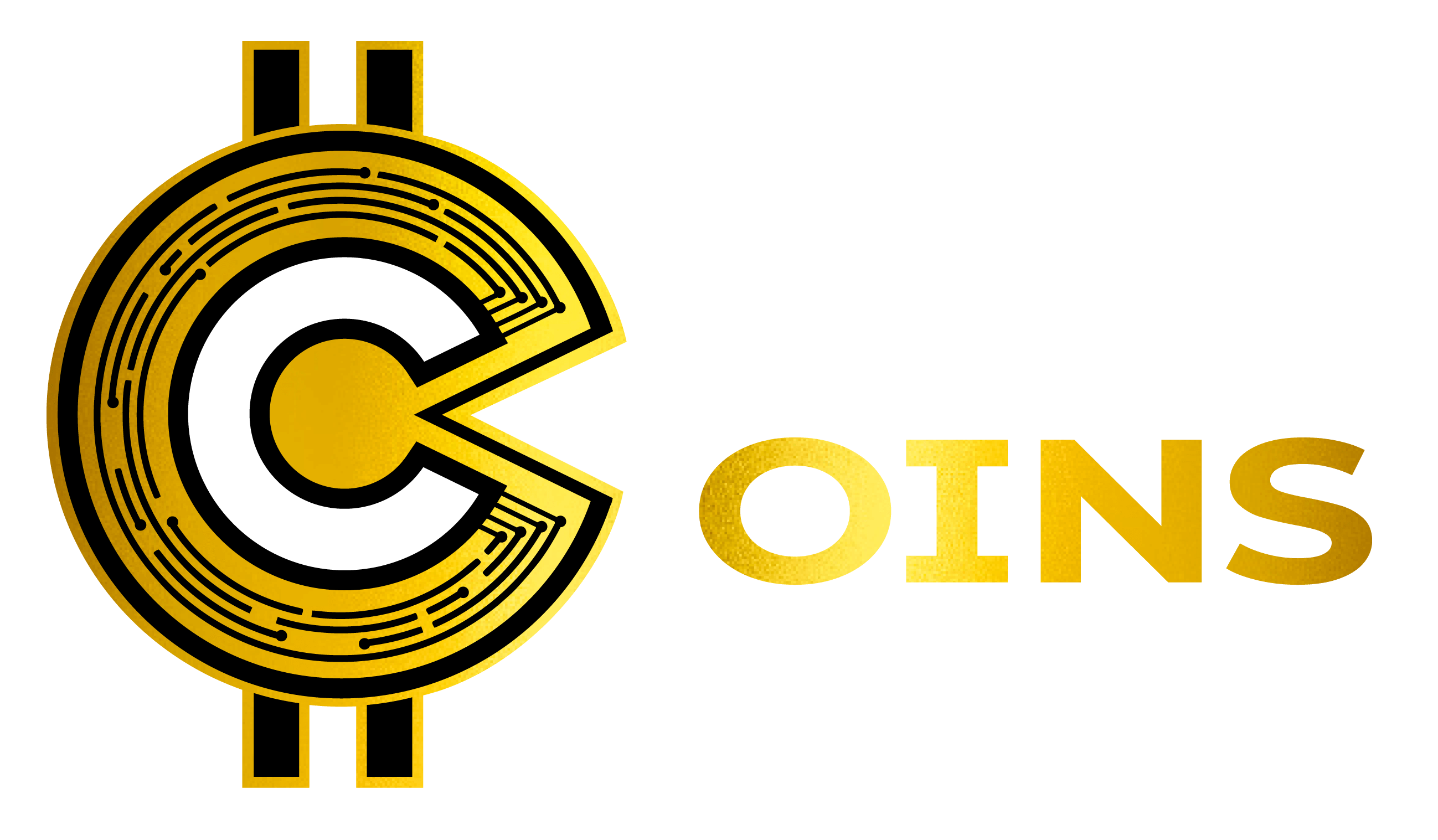
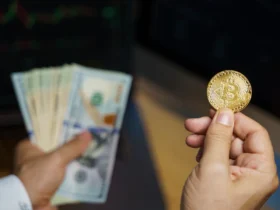


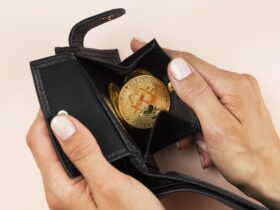
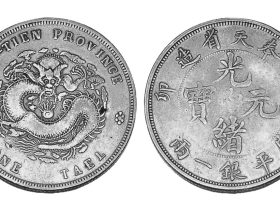
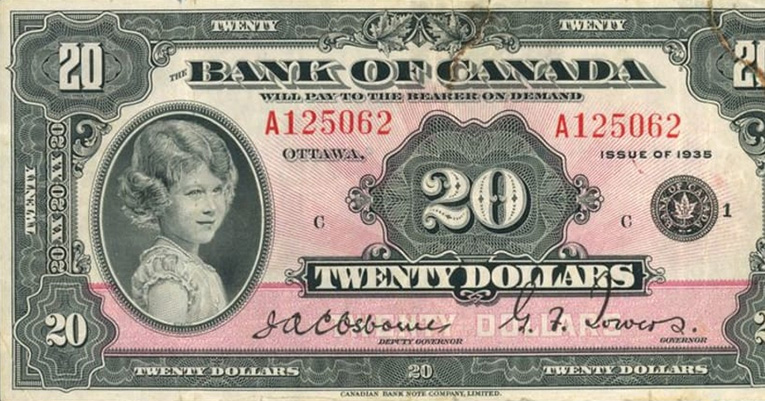
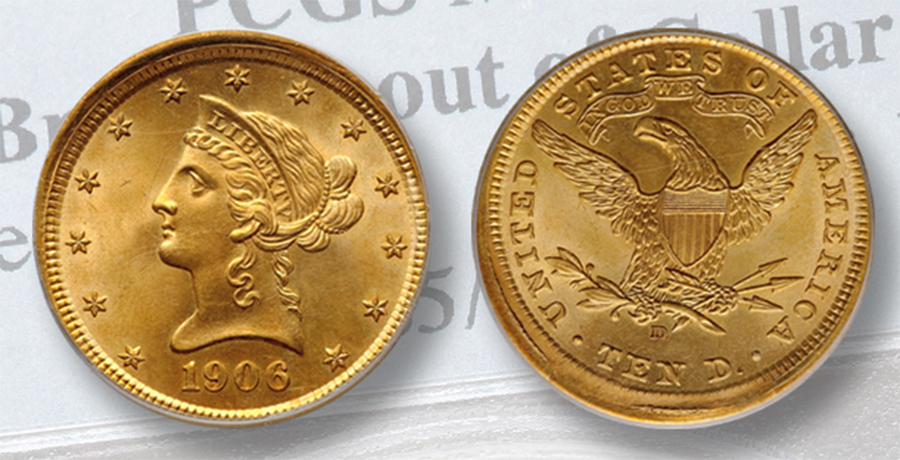
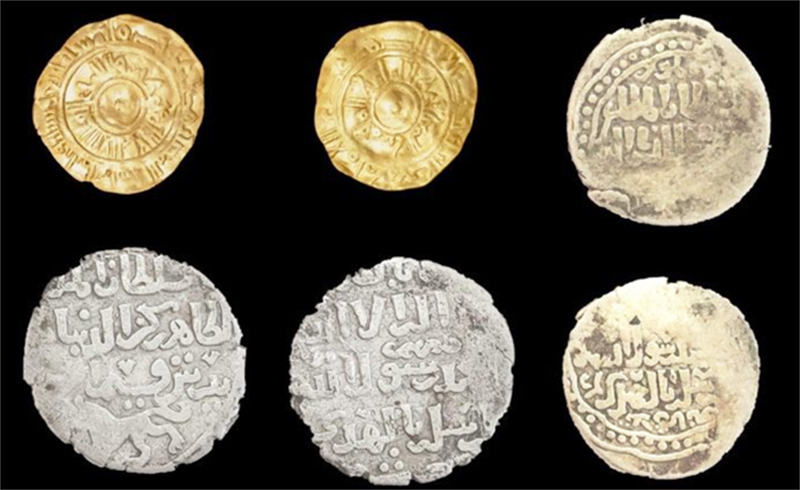

Leave a Reply